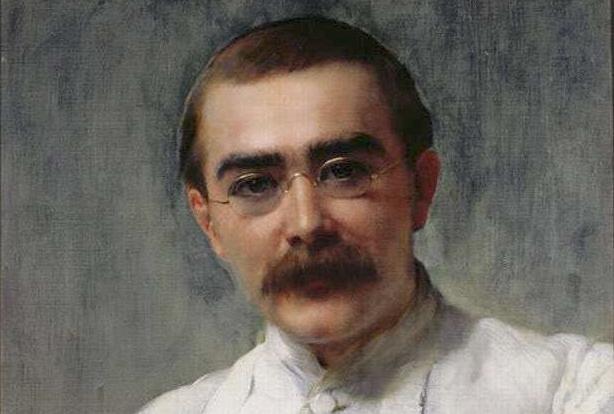Rudyard Kipling

Kipling was born in India to English parents who represented the British ruling class. They wanted their child to grow up to be English, so at the age of six, he was sent to foster parents in Southsea in England together with his three-year-old sister. His foster mother was abusive, and at the age of eleven, Kipling suffered a mental breakdown. A friend of the family alerted his mother, and she sent him instead to boarding school in Devon. Kipling was much happier at school, and he discovered that he had a talent for writing. The abuse he suffered as a child inspired the short story 'Baa Baa Black Sheep'. He also touches on the subject in the novel The Light That Failed and in the first chapter of his autobiography, Something of Myself.
When he finished school, Kipling returned to India and started working at a British newspaper in Lahore. He suffered from insomnia and used to be out and about at night, visiting brothels and opium dens. Having grown up in India and displaying a deep love of the country, Kipling was welcomed by the locals and included in events and areas from which most of the British colonisers were excluded.
In 1886, he published his first collection of verse, Departmental Ditties. That same year he also began to contribute short stories to the newspaper he worked for.
Kipling quickly earned a name for himself. His portrayal of life in the far reaches of the British Empire were loved and widely read. He wanted to focus on his career and decided to move to England, as that would offer more opportunities.
Kipling's publisher, a man named Wolcott Balestier, was very important to him. They were close friends, perhaps also lovers, and they even wrote together – something Kipling did with no one else. In 1892, a week after Wolcott Balestier died, Kipling married his sister, Caroline Starr Balestier. While on their honeymoon to Canada, the bank that held all their funds went bankrupt and they were left penniless. The pair sought help from Caroline's relatives in Vermont. Later, the couple decided to settle there. It was while living in Vermont that Kipling wrote his most famous works, among them The Jungle Book.
Kipling was highly acclaimed in his lifetime, and in 1907, he won the Nobel Prize in Literature. The committee stated that the prize was given "in consideration of the power of observation, originality of imagination, virility of ideas and remarkable talent for narration which characterize the creations of this world-famous author".
Kipling's work has often been criticised for its colonial sympathies, and his poem 'The White Man's Burden' has, in the post-colonial age, been regarded as the ultimate imperialist creed. However, his views were more complicated than he has been given credit for, and in some of his work, he also raises questions about the worldview at the time and the assumption of the white man’s God-given superiority to other races and peoples. In Kiplings work, the sympathy is usually with colonised rather than the colonisers. On the other hand, Kipling usually portrays the native inhabitants of the colonies as child-like. We recognise much of this in his short story 'Lispeth' which you will find in 'Related content' below.
Guoskevaš sisdoallu
'The White Man's Burden' is a poem by Rudyard Kipling.
Rudyard Kipling (1865-1936) was born in India to English parents who were part of the British ruling class.